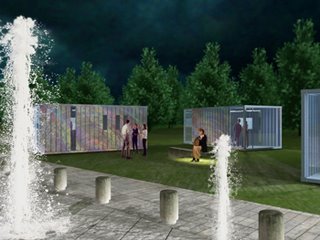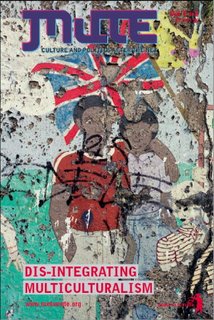
Container Culture is an exhibition developed by the Curatorial Working Group of the Pacific Rim New Media Summit. Each curator has selected one or more emerging regional artists to present at ZeroOne San Jose / ISEA2006, using a shipping container as not onlly its means of transportation but also as the "white cube" for its exhibition.
One of the most significant examples of cross-cultural encounters in contemporary art is the traveling exhibition. The traveling art exhibition has often served to operationalize and exemplify the cross-cultural encounters and exchanges that are deemed “necessary” and “natural” in the globalized art world. However, a range of social, political, economic and art historical differences generally complicate the globally themed traveling exhibition. The artists in traveling exhibitions are rarely able to adequately respond to each new context through their works, which is what these exhibitions are meant to initiate. The traveling exhibition thus converts each new cultural context to, essentially, an empty container for the art works, with little ability to respond to the exhibition site as physical location.
Container Culture is an exhibition of art works that travel from different port cities that rim the Pacific in standardized containers to San Jose to be presented alongside each other; almost like a conference of containers. In an ironic reversal of the tendency of conventional traveling exhibitions to convert every new space into an empty container, this exhibition invites curators and artists from each of these diverse port cities to convert a container into a culturally specific space. The exhibition conceptually draws on and will explore some of the following notions:
* Ports are liminal nodes that have traditionally and still negotiate the relations between countries. Ports invoke a whole set of related concepts: commerce, exchange values, customs procedures, border anxieties, legal trade vs. illegal traffic, etc.
* Containers are “spaces” that mimic the white cube as an empty “container,” even while potentially enabling the subversion of the white cube's immobility by their portability; its transcendence by their quotidian-ness; its neutrality by their border crossings.
* Transportation of artworks traveling in space and time between countries enables culturally specific elements of one place to migrate to another. Related concepts of location, speed, logistics, proximity and distance can also be explored
* Networks. Transporting shipping containers from one port city to another maps a network of economic relationships. By specifically curating new media installations, Container Culture investigates the effect of virtual networks to create real cultural connections. The
site for full information.







